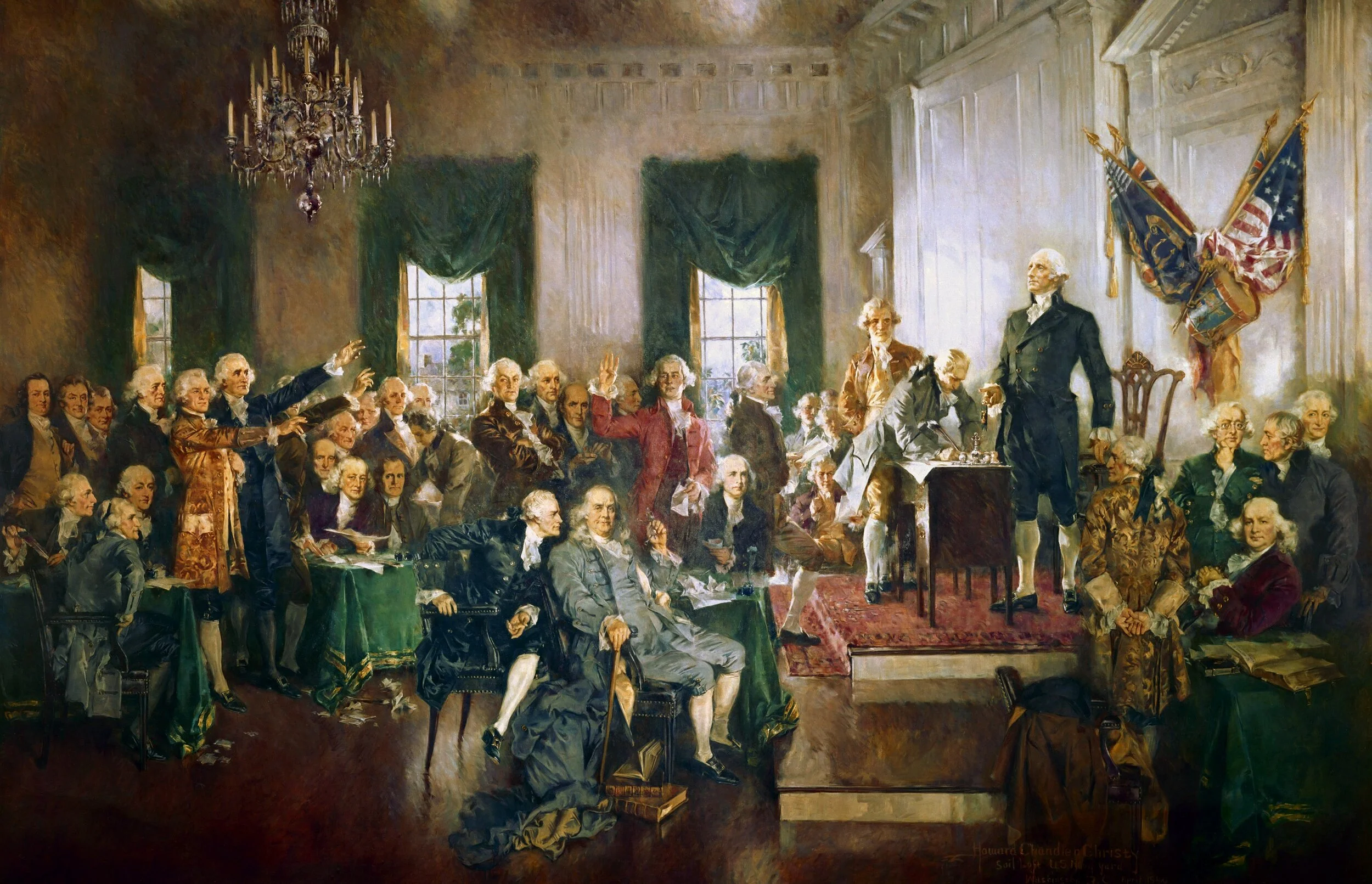The Great Fact
/Biden is in the White House. Trump is in Florida, waiting for the results of his second impeachment and for a likely wave of indictments and prosecutions from the US attorney for the Southern District of New York and other sources. As George Conway reminds us, Trump did a lot of stuff that was at best shady and more probably criminal.
Setting the spectacle of Trump’s comeuppance aside, this is the honeymoon period of Biden’s term in office — his 100 Days. Since Franklin D. Roosevelt came into office in 1933 and acted swiftly to end the Great Depression, presidents have been expected to make sweeping accomplishments in their first 100 days. Historians have even looked back to the time before 100 Days was a thing, and assessed what earlier presidents did in their own 100 Days.
According to a Vox article from 2017, FDR and Washington were among the best starters. The worst presidential 100 Days were those of William Henry Harrison (who died after only 30 days in office), Abraham Lincoln (who saw the nation erupt into civil war), and . . . . Donald Trump. Vox says no other president simply neglected his own plans and promises as Trump did.
On the campaign trail he drew up an agenda for his first 100 days, most of which he subsequently ignored. The two big promises he attempted to meet failed in spectacular fashion: Federal judges twice knocked down his travel ban, and the health care bill was so poorly thought through it never even made it to the House floor for a vote. The Syria strike, the one thing that earned him bipartisan approval, was a reversal of his campaign-trail pledge to stay out of Middle Eastern wars.
Evaluation of Biden’s 100 Days is yet to come. But one thing is certain. For good or bad, Biden will get more credit and/or blame than he deserves. Because the great fact of American life is that politics doesn’t matter all that much.
What does matter is that, regardless of politics, hundreds of millions of people get up every day and go do their jobs. They do their jobs without regard for politics, and often with very little encouragement from co-workers, supervisors or customers. The American work ethic may not be as strong at in the past, and there may be a greater sense of entitlement. (I’m not a fan of proposals for a Universal basic Income.)
But still, the great fact, or rather The Great Fact, is that America runs on something like 150-million jobs.
The effect of politician’s actions and policies can boost or cut American jobs by a couple of million. And the national press likes to use exaggerated language to describe the labor market. In fact, the usual term is that a president (himself) created millions of jobs or destroyed millions of jobs. That’s all silly.
The reality is that work and jobs and employment runs on their own momentum. People need stuff, so they get jobs to make money so they can buy the stuff they need. Meanwhile, other people have jobs doing the stuff the first people need, and getting paid so they can go buy the stuff THEY need. Presidents and political parties have nothing to do with this Great Fact.
Look at the chart. The upward trendline is total jobs in the United States (apart from farming, which is unnecessarily kept separate) for the past 80 years. Maybe you notice, as I do, that the line slopes upward. The national economy keeps growing as the population grows. that’s not something that happens because of a president.
Source: FRED (Federal Reserve Economic Data) at the Federal Reserve Bank of St. Louis
The grey parts are economic recessions, which occur for a variety of reasons. Certainly a president can help or hinder an economy — by a small amount. But the big changes are beyond the president’s control. The biggest dips in the chart above are in 2009 (a financial crisis that was not the fault of either George W. Bush or Barack Obama), and 2020 (which was not the fault of Donald Trump). Trump could have handled the pandemic better, certainly, but he did not invent the disease.
So, once again, The Great Fact of American life is that people get up every day and do their jobs. The politicians get credit for the work that ordinary people do.
In closing, let’s consider a beautiful moment in film that dramatizes that great American devotion to work. Sigourney Weaver plays a role in the science-fiction comedy Galaxy Quest, in which she alone interacts with the ship’s powerful computer. The thing is, everybody else aboard can hear the computer just as well as she can. Eventually, Weaver explodes with an indignant declaration of the great America work ethic: Look! I’ve got one job on this lousy ship. It’s stupid, but I’m gonna do it. OK?”
!











